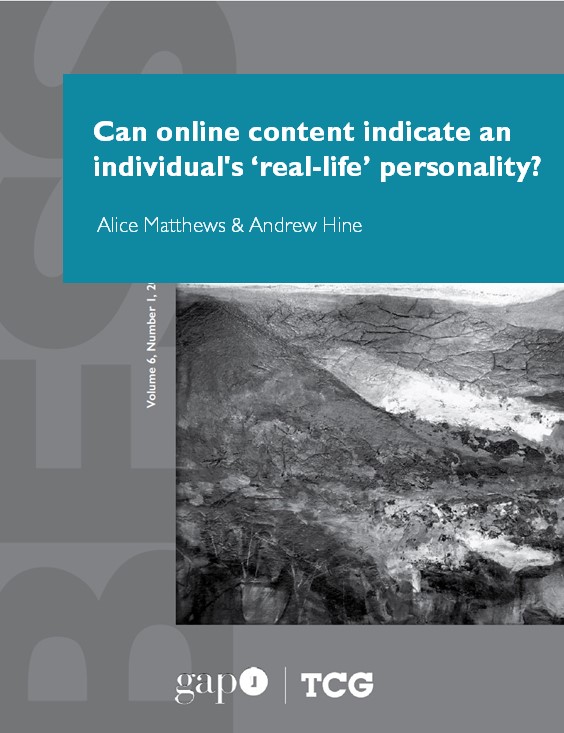Can online content indicate an individual's ‘real-life’ personality?
DOI:
https://doi.org/10.54337/ojs.bess.v6i1.8723Keywords:
Online content, personality, information gap, IPIP 50, data ownershipAbstract
Over the past few decades, many people have been displaced for various reasons and must seek employment, accommodation and integration opportunities in host countries without local experience or references. Online content may offer an opportunity to bridge this trust and information gap. To this end, we searched for a correlation between personality inferences and psychometric measurements from online content to determine whether online content can approximate traditional psychometric analysis. Our results show that text content data from various online sources can indeed estimate the IPIP 50 outcomes of psychological surveys; an individual's online content reflects their ‘real life’ personality traits.

Downloads
Published
Issue
Section
License
Copyright (c) 2024 Alice Matthews, Andrew Hine

This work is licensed under a Creative Commons Attribution-NonCommercial-NoDerivatives 3.0 Unported License.
This journal provides immediate open access to its content on the principle that making research freely available to the public supports a greater global exchange of knowledge.
Articles published in BESS follow the license Creative Commons Attribution-NonCommercial-NoDerivs 3.0 Unported (CC BY-NC-ND 3.0)
Authors retain copyright and grant the journal right of first publication with the work simultaneously licensed under a Creative Commons Attribution License: Attribution - NonCommercial - NoDerivs (by-nc-nd).
Further information about Creative Commons




